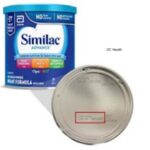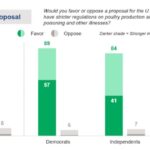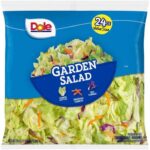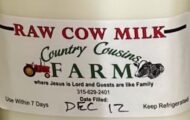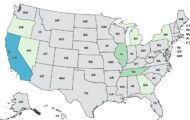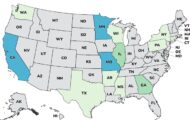If you're lucky, the first time you ever heard the word "Cronobacter" was on a news segment last week. The foodborne pathogen with a name that sounds like a sci-fi villain doesn't make headlines often. And that's good. Because Cronobacter is only known for one thing - causing severe, often fatal, illness in newborn babies. And its main vehicle of transmission is powdered infant formula. Last week, federal health officials announced that they are investigating a possible link between Similac, EleCare, and Alimentum powdered baby formulas and the illnesses of four infants who consumed them. Three of the infants, in Minnesota, Ohio, and Texas, developed Cronobacter infections. One of them, another infant in Texas, developed a Salmonella infection. All four of the babies were … [Read more...]
Recalled Baby Formula Still on Store Shelves
A major baby formula recall for Similac, EleCare, and Alimentum was issued five days ago, so why are these products still on store shelves? On Friday, February 17, Abbott Nutrition issued a baby formula recall for Similac, Alimentum, and EleCare after four illnesses were reported among infants who consumed them. The Cronobacter and Salmonella illnesses were reported from three states, MN (1), OH (1), and TX (2). All four babies were hospitalized and Cronobacter may have contributed to a death in one case, according to the U.S. Food and Drug Administration (FDA). After Food Poisoning Bulletin received reports that consumers were still finding recalled baby formula on store shelves, we went out this morning and took a look ourselves. Five days after the recall, we found recalled … [Read more...]
FDA Boosts Outreach Amid Baby Formula Cronobacter Concerns
As concerned parents scramble for information in the wake of a Cronobacter baby formula recall, the FDA is amplifying the methods consumers can use to ask questions or submit complaints. On Friday, the U.S. Food and Drug Administration (FDA) issued a consumer advisory about Similac, EleCare, and Alimentum baby formulas made at Abbott Nutrition’s Sturgis, MI facility. The advisory was prompted by three reports of Cronobacter sakazakii infections and one report of a Salmonella Newport infection in infants who had consumed these products. All four infants were hospitalized and Cronobacter may have contributed to a death in one case, according to the FDA. “As this is a product used as the sole source of nutrition for many of our nation’s newborns and infants, the FDA is deeply concerned … [Read more...]
Similac, Alimentum and EleCare Baby Formula Recall
Abbott Nutrition has issued a baby formula recall for Similac, Alimentum, and EleCare after four illnesses were reported among infants who consumed them. The Cronobacter and Salmonella illnesses were reported from three states, MN (1), OH (1), TX (2). between September 6, 2021, and December 18, 2021 Three of the infants developed Cronobacter sakazakii infections and one of them contracted a Salmonella Newport infection. All were hospitalized and Cronobacter may have contributed to a death in one case, according to the U.S. Food and Drug Administration (FDA). Cronobacter illnesses are rare but can be deadly for newborns because they can cause sepsis and meningitis, according to the Centers for Disease Control and Prevention (CDC). For infants, symptoms of sepsis or meningitis include … [Read more...]
Similac, EleCare, Alimentum Investigated by FDA for Possible Link to Cronobacter, Salmonella Outbreak
Federal health officials are investigating a possible link between Similac, EleCare, and Alimentum powdered instant baby formulas and a Cronobacter and Salmonella outbreak. All three products were made at Abbott Nutrition’s facility in Sturgis, MI. The FDA is advising consumers to avoid buying or using these powdered infant formula products which have the following identification on the bottom of the can. the first two digits of the code are 22 through 37 and the code on the container contains K8, SH, or Z2, and the expiration date is 4-1-2022 (APR 2022) or later. The FDA and the Centers for Disease Control and Prevention (CDC) are investigating four illnesses among infants who consumed products made at Abbott Nutrition’s Sturgis, MI facility. The illnesses were … [Read more...]
Polls: Consumers Back Stronger Salmonella Standards, Industry is Split
A nationwide poll shows overwhelming support for stricter poultry regulations aimed at reducing the number of illnesses from Salmonella and other foodborne pathogens. The poll of 1,000 registered voters, conducted by the nonprofit STOP Foodborne Illness, found 86 percent of voters want the U.S. Department of Agriculture (USDA) to adopt such changes. In the U.S., Salmonella causes more foodborne illness than any other bacteria, about 1.35 million cases each year, according to the Centers for Disease Control and Prevention (CDC). Contaminated poultry accounts for about 23 percent of those illnesses. For more than two decades, the USDA has been trying to reduce Salmonella illnesses by testing for the presence of the bacteria on poultry at processing plants. But over that time period, … [Read more...]
Chicken and Salmonella Infantis, the Neverending Outbreak?
When the CDC ended its investigation of a deadly Salmonella Infantis outbreak linked to raw chicken products in February 2019, it added an unusual note at the top of the posting. "This investigation is over. Illnesses could continue because this Salmonella strain appears to be widespread in the chicken industry," it read in part. Two and a half years later, the impact of that statement came into focus when an investigative report from ProPublica revealed that the outbreak, linked to a multidrug-resistant strain of Salmonella Infantis, has never ended. “Many people are still becoming ill, and some of them gravely ill,” Robert Tauxe told ProPublica. Tauxe, who is the director of the Center for Disease Control and Prevention's (CDC’s) Division of Foodborne, Waterborne, and Environmental … [Read more...]

